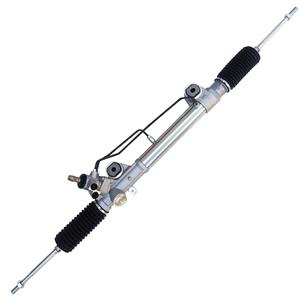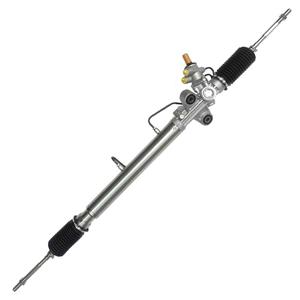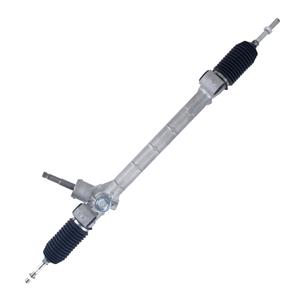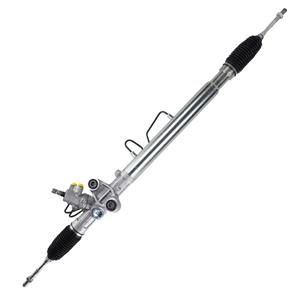What causes electric power steering failure?
Electric Power Steering (EPS) is an important technology in modern cars, which makes it easier for drivers to turn the steering wheel and improves the accuracy and comfort of control. Compared with traditional hydraulic power steering systems, electric power steering systems do not rely on the engine to drive the hydraulic pump, but are powered by electric motors.
Due to its simple structure, energy saving and environmental protection, and sensitive response, more and more automakers are using electric power steering systems in new cars. However, despite the many advantages of EPS, it also has some risk factors that may cause failure.
This article will discuss in detail the main causes of electric power steering failure, analyze the symptoms and countermeasures that may be caused.
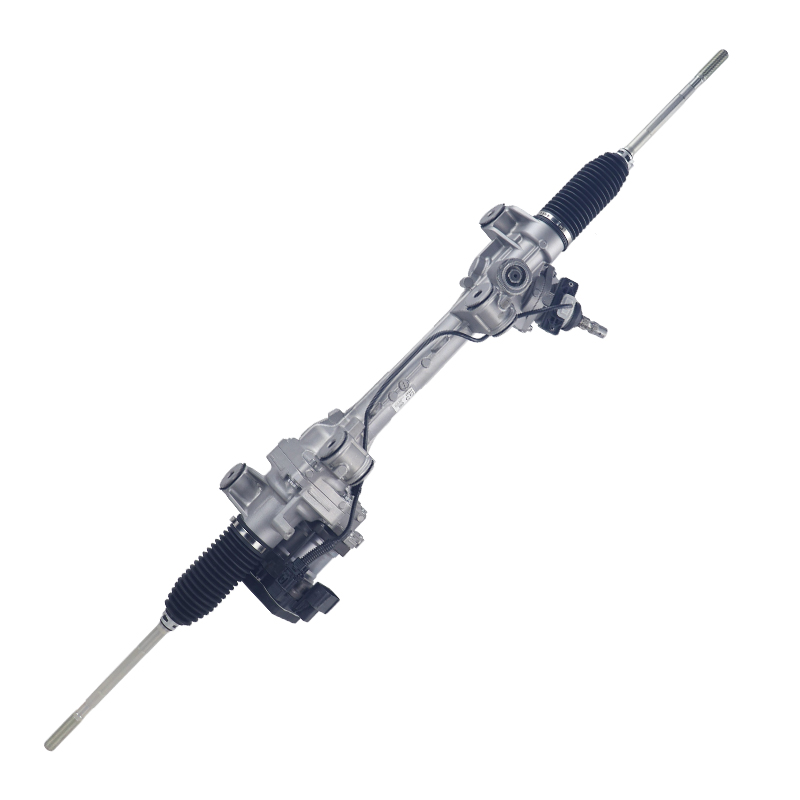
How does the electric power steering system work?
Before discussing the reasons for the failure of the electric power steering system in depth, it is crucial to first understand its working principle. The electric power steering system monitors the driver's steering force requirements through sensors on the steering wheel and transmits the signal to the control module, which then sends instructions to the electric power motor, and the motor provides additional power to help the driver complete the steering. Compared with traditional hydraulic systems, EPS does not require mechanical parts such as hydraulic pumps and belts, so it has higher efficiency.
The main components of EPS include:
1. Steering sensor: monitors the steering angle, speed and torque of the steering wheel.
2. Electric power motor: provides power according to the information transmitted by the sensor.
3. Control module (ECU): responsible for processing sensor data and issuing corresponding instructions to the motor.
4. Power system: provides electricity to drive the motor.
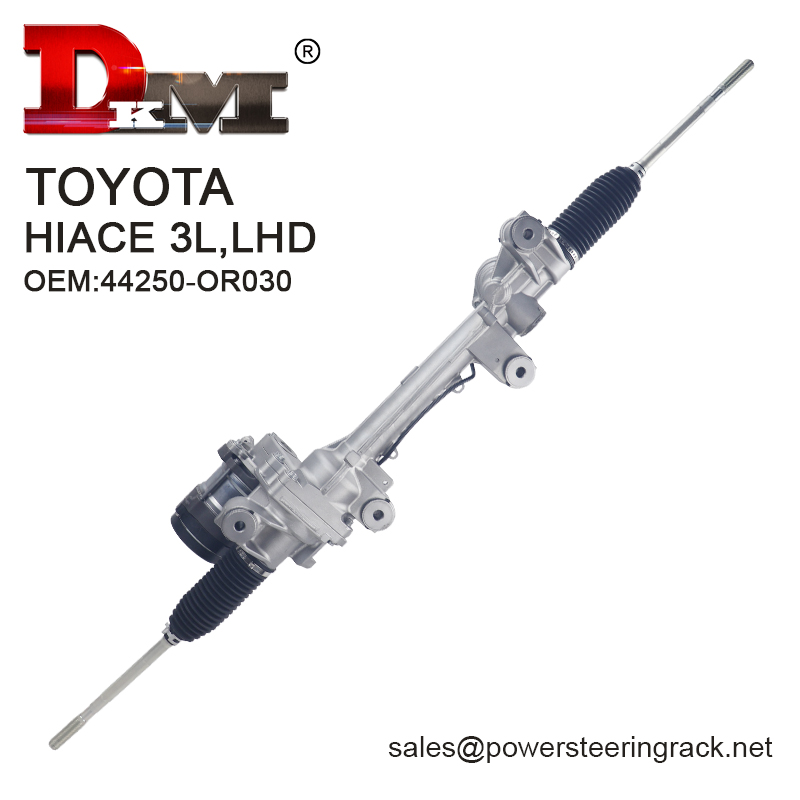
What is the reason for the failure of electric power steering?
The reasons for the failure of electric power steering are:
1. Electrical system failure
2. Steering sensor failure
3. Control module (ECU) failure
4. Electric power motor failure
5. Power system problem
6. Mechanical problem
7. Temperature change
8. Moisture intrusion
Although the electric power steering system is relatively stable and efficient, it is not completely problem-free. These 8 points are the main causes of EPS failure, which are described as follows:
Electrical system failure
The electric power steering system relies on electricity to operate, so any problems related to the electrical system may cause the power system to fail. Common electrical problems include low battery, blown fuses, and short circuits.
● Battery problems: If the car's battery is low, the electric power motor cannot get enough power supply, which may cause the system to fail. This is especially common in cold weather or when the battery is aging.
● Fuse or relay failure: Some components in the EPS system, such as the motor or control module, rely on the normal supply of power. If the fuse is blown or the relay is damaged, it may cut off the power supply and cause the system to not function properly.
● Wiring problems: Short circuits or poor contact may cause electrical connections inside the EPS system to fail, which may cause steering failure.
Steering sensor failure
The steering sensor is a core component of the EPS system. It is responsible for detecting the movement of the steering wheel and transmitting information to the control module. If the sensor fails, the system may not be able to correctly read the driver's steering needs and provide power to the motor.
● Sensor damage: Due to long-term use or external impact, the steering sensor may be damaged, resulting in inaccurate signals.
● Sensor calibration problems: If the sensor is not calibrated correctly, the power provided by the steering system may not match the actual needs of the driver.
Control Module (ECU) Failure
The control module is the brain of the EPS system, responsible for analyzing data from sensors and deciding how much power to provide to the power motor. If the control module fails, the power-assisted system will not work properly.
● Software Failure: In some cases, the failure of the control module may be caused by a software problem, especially if the software is not updated correctly when the vehicle upgrades the system.
● Hardware Damage: Since the control module is under a lot of data processing tasks, long-term operation or external impact may also cause damage to the components inside the module.
Power-assisted Motor Failure
The power-assisted motor is the power source of the EPS system and provides steering assistance for the vehicle. If the power-assisted motor fails, the driver will feel that the steering becomes unusually heavy or completely loses power.
● Motor Overheating: The electric motor may overheat when it is running for a long time, especially in a hot environment or when the vehicle frequently uses the steering function. If the motor overheat protection mechanism fails, it may cause the power-assisted system to suddenly fail.
● Motor Wear: As the vehicle ages, the mechanical components inside the power-assisted motor may wear out, resulting in a decrease in output power or complete failure.
Power system problems
The normal operation of the EPS system depends on the vehicle's power system, especially the stable power supply of the generator. If there is a problem with the vehicle's generator, the EPS system will not be able to obtain a continuous power supply.
● Generator failure: The generator cannot provide enough power to the vehicle, which may cause the EPS system to work abnormally. Generator failure is usually accompanied by abnormalities in other electrical systems, such as dimming of headlights, abnormal instrument panel display, etc.
● Battery aging: Although the battery is mainly used as a backup power supply in the EPS system, if the battery is aged or insufficient, it may also cause unstable power supply to the system, which in turn affects the normal operation of EPS.
Mechanical problems
Although the electric power steering system mainly relies on electronic components, its final output is still connected to the vehicle's mechanical steering system. Therefore, mechanical failures may also cause the steering system to fail.
● Steering rack damage: If the steering rack or steering gear is worn or damaged, the electric power system will not be able to provide enough power even if it works normally. At this time, the driver will feel that steering has become extremely difficult.
● Bearing or joint wear: If the bearings or joints in the steering system are worn or rusted, it may also affect the normal operation of the system and cause steering problems.
Temperature changes
Changes in external temperature may also affect the performance of the electric power steering system, especially in extreme weather conditions. Low temperatures may cause electrical components to react slowly, resulting in reduced system power, while high temperatures may cause motor overheating or electronic component failures in the control module.
Moisture intrusion
Although the vehicle's electric power steering system has protective devices, in extremely humid environments or water ingress, moisture intrusion into the circuit may cause a short circuit or sensor failure. Especially when driving on wading roads, if the seal is not tight, it may affect the normal operation of electrical components.
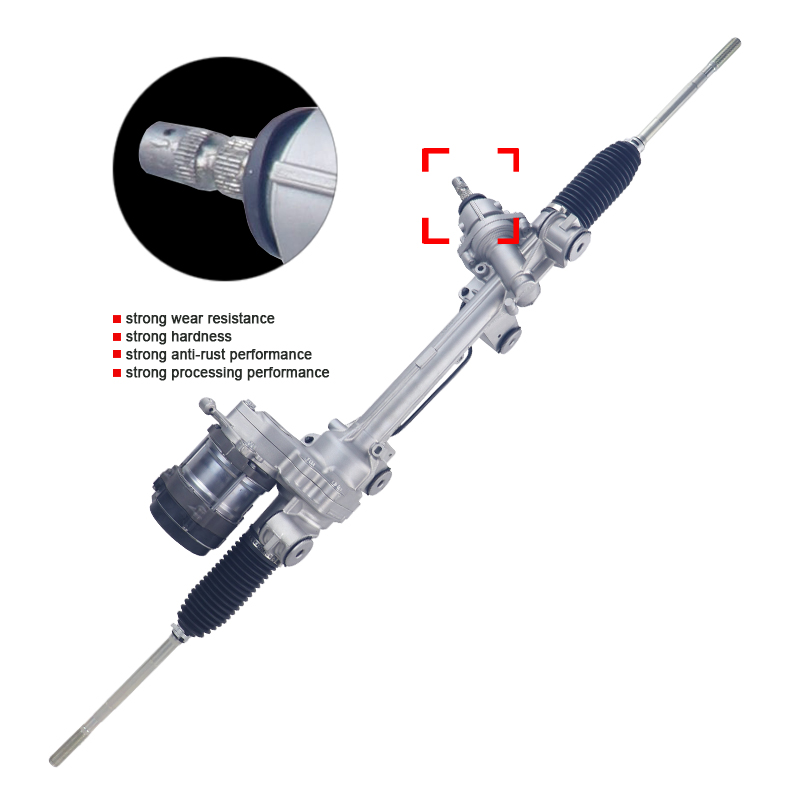
What are the symptoms of electric power steering failure?
Symptoms of electric power steering failure:
1. Steering becomes heavy
2. The instrument panel warning light is on
3. Steering response is slow
4. Abnormal noise
5. The vehicle has difficulty keeping a straight line
After understanding the reasons for the failure of electric power steering, car owners also need to master the method of identifying the symptoms of failure so that timely measures can be taken for repair. The following are some common manifestations of EPS system failure:
Steering becomes heavy:
This is the most common symptom of electric power failure. The driver may suddenly find that turning the steering wheel becomes very difficult, especially when driving at low speeds.
Dashboard warning light is on:
When there is a problem with the EPS system, the relevant fault warning light, such as the "EPS" or "Power Steering" indicator light, will usually light up on the vehicle's dashboard.
Slow steering response:
Even if the steering wheel can be turned, the power steering system may not be responsive enough, resulting in inaccurate or slow steering.
Abnormal noise:
If there is a problem with the electric power steering motor or mechanical components, the driver may hear abnormal noises, such as buzzing or clicking, when turning the steering wheel.
The vehicle has difficulty keeping a straight line:
After the EPS system fails, the vehicle may have difficulty keeping a straight line, and the driver needs to constantly correct the direction.
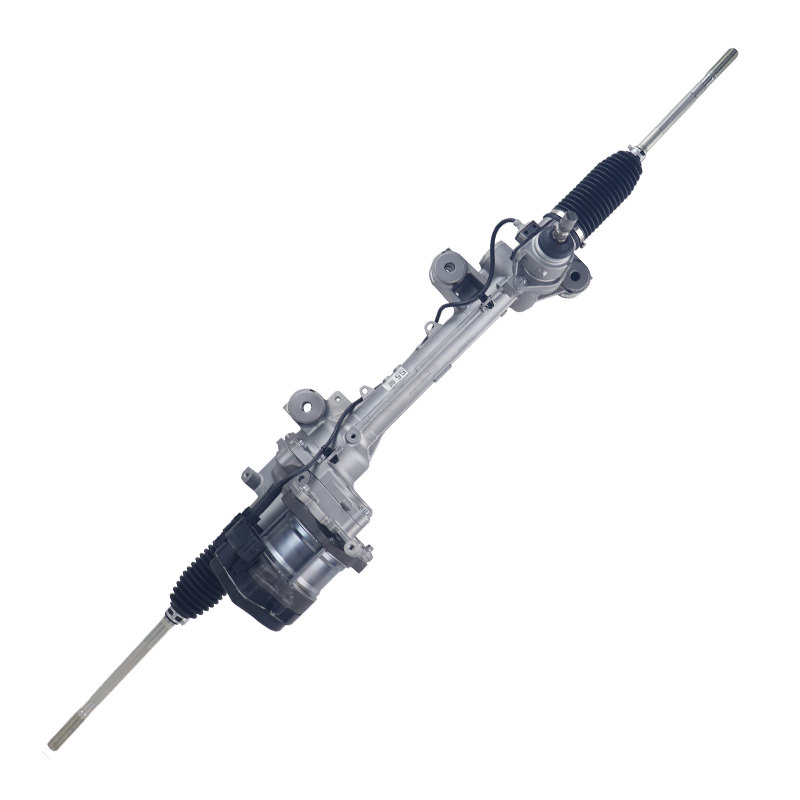
How to deal with electric power steering failure?
If you find a problem with the steering system during driving, you should choose a safe place to stop as soon as possible and avoid continuing to drive to avoid losing control of the vehicle. Secondly, check the fault light prompts on the dashboard and record the relevant information for further diagnosis by maintenance personnel. In addition, the failure of the electric power steering system usually requires professional equipment for detection, and the owner should contact the car repair center for inspection as soon as possible.
Foshan Diamond Auto Parts Co., Ltd. has been manufacturing durable and reliable power steering systems since 1996. With a yearly production capacity of 300,000 units and exports to over 10 countries, we are a trusted supplier for distributors and OEMs. Our state-of-the-art factory in China features over 280 CNC machines, ensuring precise and high-quality products. Whether you’re looking for rack gear steering systems for Toyota, Hyundai, or Volkswagen, we offer a wide range of affordable options to meet your purchasing needs. Request a free quote today and take advantage of our wholesale pricing, low-cost solutions, and custom manufacturing capabilities.

